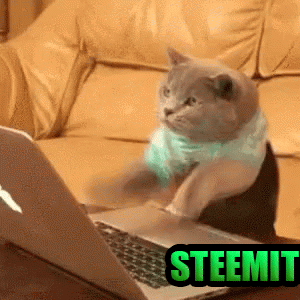These are the exercises suggested the last class:
Write sentences in future tense, use the following verbs, and follow the example:
Venir (to come) Yo vendré el lunes
Tener / caber / poner / querer / saber / valer / decir / haber
| Infinitive Verb | Sentence |
|---|---|
| Tener (to have) | Yo tendré un carro |
| Poner (to put) | Ella pondrá la mesa |
| Caber (to fit) | Ustedes cabrán en esa camioneta |
| querer (to want) | Tú querrás torta |
| -------- | --------- |
| Saber (to know) | Yo sabré la dirección |
| Valer (to worth) | Eso valdrá mucho más |
| Decir(to say) | Ustedes dirán sus apellidos |
| Haber | Habrá comida en la reunión |
| -------- | --------- |
Let’s do a review about the present, past and future tense verbs in Spanish.
Spanish Infinitive verb ending in –ar
Amar
| Present | Past | Future |
|---|
| Yo amo | Yo amé | Yo amaré |
| Tú amas | Tú amaste | Tú amarás |
| Ella, él ama | Ella, él amó | Ella, él amará |
| Nosotros amamos | Nosotros amamos | Nosotros amaremos |
| Ustedes aman | Ustedes amaron | Ustedes amarán |
| Ellos, ellas aman | Ellos, ellas amaron | Ellos, ellas amarán |
Notice that the person ‘nosotros’ in present and past, is the same conjugation and ending. How can I know when it is in present or past? The context will tell you or specific words as adverbs of time. Example:
Para la fiesta de Andrea, Nosotros cocinamos unos deliciosos pasteles.
This sentence could be ambiguous but take into account the context: If Andrea’s party was in the past, it’s obvious that the sentences is in past. If Andrea’s party will be later. The sentence is in present.
Cocinamos como unos expertos.
This sentence is in present tense. It’s an habitual action. Now pay attention:
Ayer, Cocinamos como unos expertos.
‘Ayer’ refers to the past, it’s an adverb. So the sentence is in past tense.
Spanish Infinitive verb ending in –er
Comer
| present | past | future |
|---|
| Yo como | Yo comí| Yo comeré |
| Tú comes | Tú comiste| Tú comerás |
| Ella, él come | Ella, él comió | Ella, él comerá |
| Nosotros comemos | Nosotros comimos| Nosotros comeremos |
| Ustedes comen | Ustedes comieron | Ustedes comerán |
| Ellos, ellas comen | Ellos, ellas comieron| Ellos, ellas comerán |
Spanish Infinitive verb ending in –ir
Vivir
| present | past | future |
|---|
| Yo vivo | Yo viví | Yo viviré |
| Tú vives | Tú viviste | Tú vivirás |
| Ella, él vive | Ella, él vivió | Ella, él vivirá |
| Nosotros vivimos | Nosotros vivíamos | Nosotros viviremos |
| Ustedes viven | Ustedes vivieron | Ustedes vivirán |
| Ellos, ellas viven | Ellos, ellas vivieron | Ellos, ellas vivirán |
These are conjugation of regular verbs. Let´s practice: read the following statements underline the verbs and say the tense, for example:
Mi madre trabaja en ese restaurant.
Mi madre trabaja en ese restaurante (present)
- Mary estudiará medicina
- Yo manejé la bicicleta
- La gente camina por todas las calles
- Entregaré la carta a Roberto
- Ese hombre escribe con su boca
- Dibujamos varios paisajes ayer
- Compraremos una casa en Barcelona.
- Ganaron la competencia
- Yo limpio toda la casa
- Ella cocinó un rico pastel de chocolate
Well that's all friends, in the next post, we will continue with more classes to learn the grammar of Spanish. Review all classes and practice the exercises given. Any questions make your comment. Until next time. Next post in 72 hours.


Congratulations! This post has been upvoted from the communal account, @minnowsupport, by mandela11 from the Minnow Support Project. It's a witness project run by aggroed, ausbitbank, teamsteem, theprophet0, someguy123, neoxian, followbtcnews, and netuoso. The goal is to help Steemit grow by supporting Minnows. Please find us at the Peace, Abundance, and Liberty Network (PALnet) Discord Channel. It's a completely public and open space to all members of the Steemit community who voluntarily choose to be there.
If you would like to delegate to the Minnow Support Project you can do so by clicking on the following links: 50SP, 100SP, 250SP, 500SP, 1000SP, 5000SP.
Be sure to leave at least 50SP undelegated on your account.